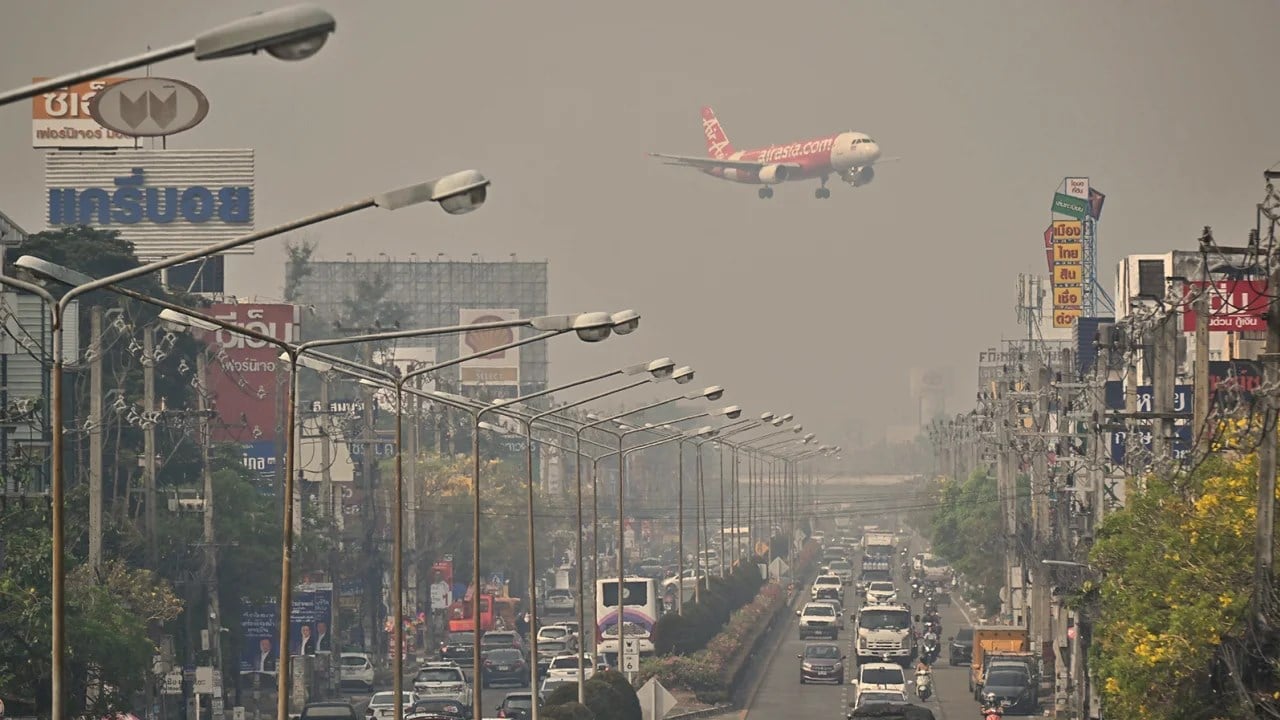Air pollution strikes tourism in Thailand
The tourist season in the historic city of Chiang Mai is under threat as the city experiences one of the world's highest pollution rates in the world due to forest fires and stubble burning.
-

An Air Asia plane prepares to land in Chiang Mai International Airport in the heavily polluted but busy Thai city, 10 April 2023. (AFP)
Pollution levels in northern Thailand have led to detrimental effects on the historic city of Chiang Mai, its economy, and its residents.
Forest fires and farmers burning crop stubble produced brownish fogs that are covering the tourist city. Global air monitoring platform IQAir ranked the city as one of the most polluted cities in the world, positioned over cities like Delhi and Lahore.
Images and videos of the fog have quickly circulated, reaching tourists who are canceling their trips to Thailand.
Tourism is one of Thailand's main sectors, and pollution is having disastrous effects on it.
Residents of the area submitted petitions to the Thai government to act quickly to curb the effects of the environmental disaster.
PM2.5, tiny particles that when inhaled can enter the bloodstream, were recorded at 30 times the World Health Organization’s guideline, according to IQAir.
Residents' and Tourists' health is at risk
According to Siwatt Pongpiachan, an atmospheric consultant at the National Astronomical Research Institute of Thailand, farmers burning their fields are the biggest source of pollution.
The combination of a changing global weather pattern and Chiang Mai's terrain, which traps pollution, drove “PM 2.5 into the perfect storm this year," the consultant said.
Two million people in Thailand have suffered from respiratory conditions caused by air pollution and needed hospitalization, according to the Public Health Ministry.
Doctor Rungsrit Kanjana, a cardiologist in the city, said that Thai officials are not putting enough resources to combat pollution in the city, adding, "We should care about our guests' health more, that should be a priority."
The cardiologist also revealed the harrowing effects of pollution on human life.
Dr. Kanjana explained that "for every 10 micrograms per mil increase in PM2.5, there is one year less of lifespan. You have to multiply it by the exposure range." he then added, "Everyone breathes, so the effect on the population is very substantial."

 2 Min Read
2 Min Read










